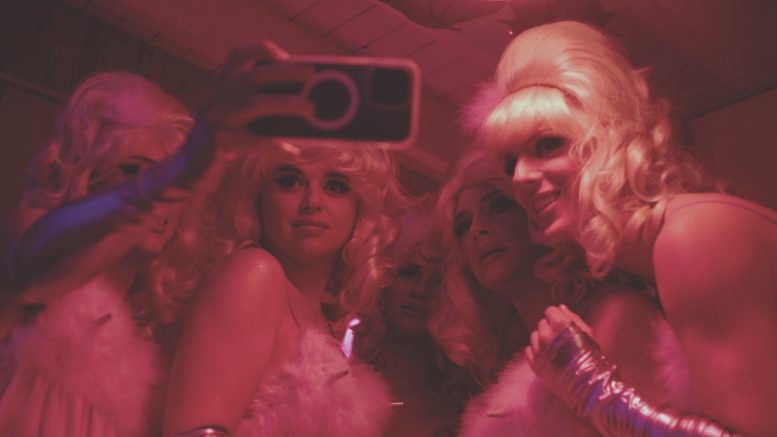We are all part of a family, whether it is one we are born into or one we choose.
That is the idea behind this year’s theme for the Reel Pride Film Festival, We Are Family, which runs from Sept. 24 to 28 at Winnipeg’s Gas Station Arts Centre. The annual event, organized by the Winnipeg Gay and Lesbian Film Society, is celebrating its 39th edition.
“We’re all born with a pronoun, but as we take possession of ourselves, and of our own futures and our own bodies and everything else, we decide what our pronouns are going to be,” said Ray Desautels, president of Reel Pride. “It’s like that with family. People are born into a biological family and for some people, that’s not a great circumstance. And later on in life, they choose their family.”
Desautels said the festival has become a cornerstone for the 2SLGBTQ+ community, showcasing films that reflect a wide variety of queer experiences from around the world.
The festival, which began in 1985 as part of a grassroots movement to bring 2SLGBTQ+ stories to Winnipeg’s cinema screens, has grown significantly.
Originally a series of monthly film nights advertised through mail-outs, formally became Reel Pride in 2000. Since its inception, nearly 1,000 films have been shown, many of which would otherwise have never been screened in Manitoba.
This year’s lineup includes nine feature films, many of which have never been shown in Manitoba before, along with a collection of short films by emerging Canadian queer filmmakers.
The films come from diverse backgrounds, with entries from Egypt, France, Greece, Canada and Hong Kong. Each reflects unique facets of 2SLGBTQ+ life, with all films selected this year exploring strong themes of chosen family.
Desautels indicated that the full feature films are acquired in two ways. “We look for [the films] and now because we’re getting quite well known we have distributors from all over the world that send us films,” he said. “So, we look at maybe 20 or 30 films and from there we select eight that we choose for the festival.”
One of the festival’s highlights is the Canadian 2SLGBTQ+ Short Film Competition, part of the program since 2004. The competition gives young and emerging queer filmmakers from across the country the opportunity to showcase their work.
“And for the short films, there’s a call across Canada that goes out. And the young filmmakers, emerging filmmakers, queer filmmakers send us their films,” he said.
“There’s a committee that sits down and looks at that and from all the ones we receive, we choose fifteen of them. Those are shown and they’re awarded prizes throughout the festival.”
The festival also includes an art show, which will be on display every day at the Gas Station Arts Centre. The exhibition features work by local queer artists, with all the proceeds going directly to the artists.
“Arts isn’t just media film, so we wanted to expand that to give the young queer artists a place to display their work. There isn’t, you know, a unique place for them to come and show their work,” Desautels said.
Reel Pride has relied heavily on volunteers and community support to keep the festival running. From the beginning, the festival has been a volunteer-driven effort, and that has not changed.
“We’re always looking for people to join our board and join the committee. We can always use another set of hands another set of eyes the more people that can help us pick movies the better movies,” he said.
Reel Pride is already planning for its 40th anniversary next year, and Desautels is hopeful about the future.
“We have to continue looking at it being a place where the community can congregate and get together and celebrate and hear our voices, especially in this time where there’s lots of hate out there, and that seems to be growing,” Desautels said “I think it’s more important that we be visible and that our voices be heard.”
Despite the challenges the festival has faced, including an increase in hate messages on social media, Desautels remains committed to the festival’s mission.
“If we start to sit back, the hate grows and the hate wins,” he said.
“We’ve never had as much hate messages and stuff as we have this year on our social media, we’re deleting it constantly. And to me that reinforces the need that this has not gone away. The fight is not over.”
For more information and to view the full schedule of films, visit reelpride.ca.



